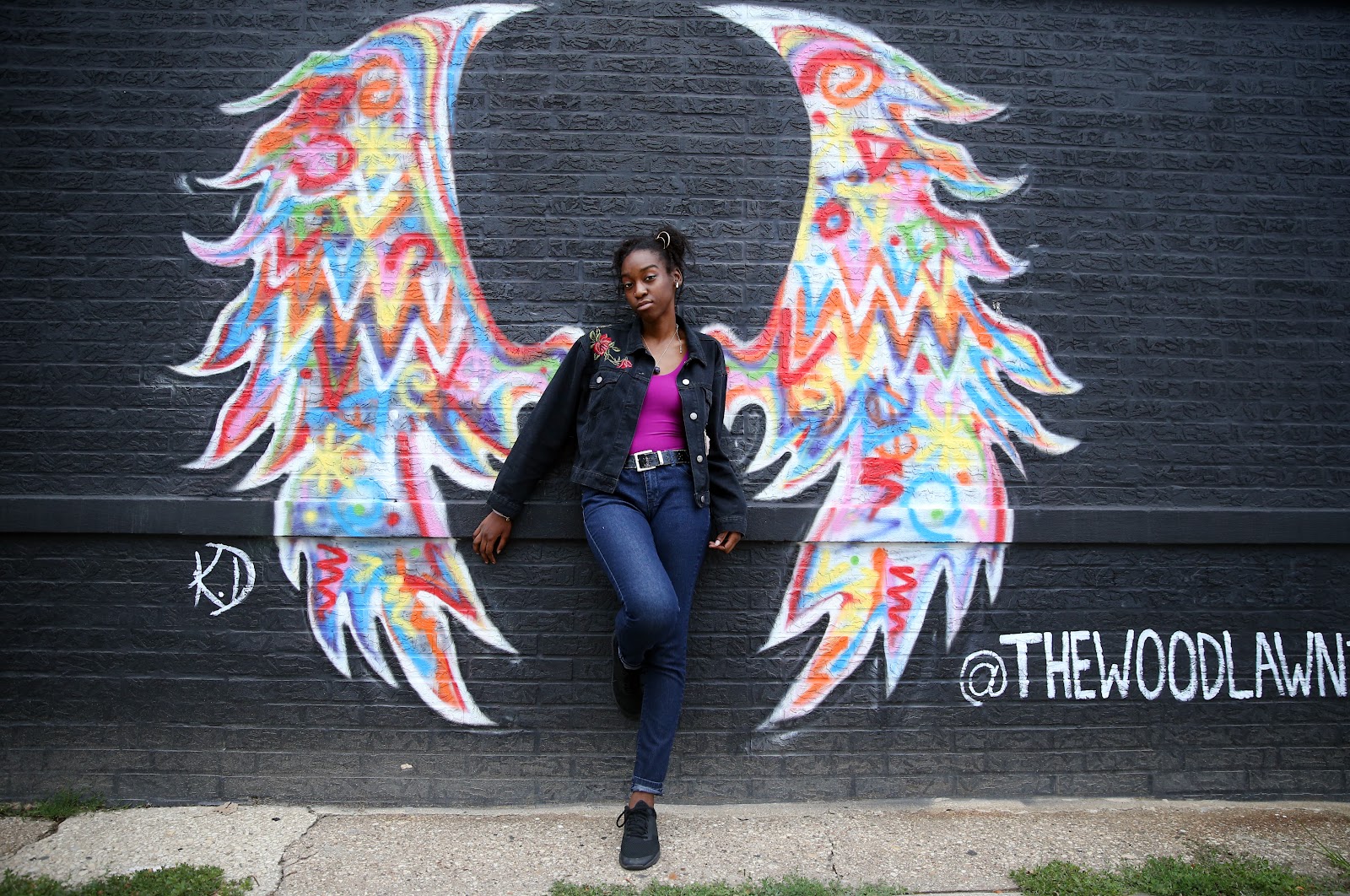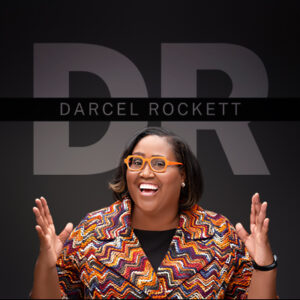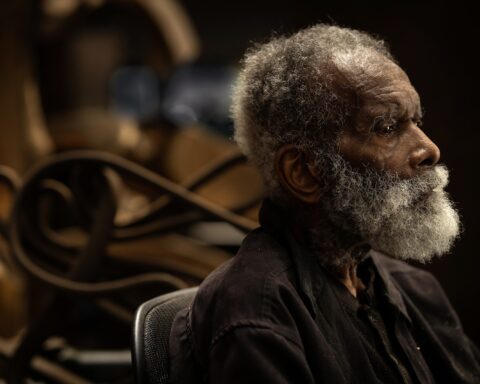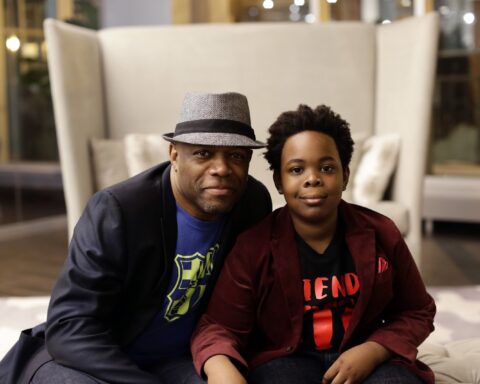Seems like people been teasing me all my life. If it ain’t about my color, it’s my clothes.
It’s bad enough that I’m the darkest, worse-dressed thing in school. I’m also the tallest, skinniest thing you ever seen. And people like John-John remind me of it every chance they get. They don’t say nothing about the fact that I’m a math whiz … or that I got a good memory and never forget one single, solitary thing I read. They only see what they see, and they don’t seem to like what they see much.
Up until now, I just took it. The name calling. The pushing and shoving and cheating off me. Then last week something happened. Enough is enough. I deserve better than for people to treat me any old way they want. But saying that is one thing, making it happen is something else.
So you see, I got my own troubles.
Fictional Maleeka Madison gets teased for the dark color of her skin and her homemade clothes, but she’s vowed to turn it around despite bullies like Charlese Jones. Her mother, love interest Caleb and new teacher Miss Saunders are all a part of Maleeka’s journey — a journey as told by Pittsburgh-based author Sharon Flake in “The Skin I’m In.”
The book turns 20 this year and still flies off the shelves at school libraries and classroom reading nooks, according to teachers and former students.
“Maleeka is no angel, and her teacher Miss Saunders is not the answer to everything in Maleeka’s life, but the way that Maleeka is able to stand up to the varied kinds of pressures that are still very real in all middle school kids’ lives is something that speaks to kids,” said Kipp Dawson, a retired librarian and middle school English teacher from the Pittsburgh area with more than 20 years of teaching experience. “It speaks to the experience of middle school; it has been a magic way of connecting kids with themselves more than anything else.”
Avalon Park resident Ifeanyi Elswith, 20, is an artist and poet who started making music last year. She remembers picking up the book as a sixth-grader at the now-closed Goodlow Magnet Elementary in West Englewood. She wrote a song about Flake and her debut novel and recently posted it to YouTube.
“It was one of my favorite books in elementary school,” Elswith said. “Her books shed light on being a black girl in the ’hood and society and how that feels. Black women do get a certain treatment, but it’s not always talked about in real life, and that’s why I wrote a song about it. The song is a comment on colorism (discrimination based on skin color) and a comment on black women being silenced in America, and I used ‘The Skin I’m In’ to help me write that.”
‘The Skin I’m In’
By
“The Skin I’m In” is one of 10 young adult books Flake has written over the years, and, as another school year begins, Flake thinks it’s perhaps still the most impactful.
“It’s that book that people give to readers for a multitude of reasons,” Flake said. “I’ve had people give it to students who were dark-skinned in hopes of helping them understand that they’re not alone and there’s something beautiful about who they are. I’ve had principals over the years say they keep a copy in their office so when kids are in trouble and they need to sit in the office, they give them the book, and a lot of times, they’ll ask, ‘Can I take this book with me?’ I’ve had teachers come up to me in tears who said they had girls that really would have taken their lives, had it not been for the book. When you get those kinds of stories, then you realize the power of reading and writing.”
Young adult author Jason Reynolds wrote a foreword and introduction for the new edition of the book, which will be released Oct. 16.
“Before incredible movements and monikers like ‘Black Girls Rock,’ ‘Black Girl Magic’ and ‘Well-Read Black Girl,’ there was ‘The Skin I’m In,’ which is not just a book but a platform for young people — especially the Maleekas of the world — to stand on. Chin up, shoulders back, voices lifted, beaming.”
Flake said it was the schools, teachers, librarians, and parents who kept “The Skin I’m In” out there for youths all these years. Carlton Heywood, a librarian for 30 years and teacher for 27 with Pittsburgh Public Schools, says he intentionally buys paperbacks of her works because students pick up copies that then get passed to someone else.
Dawson, who thinks the book should be in every classroom, couldn’t keep copies in her own either.
“It’s one of the books that I have to replace constantly because kids are so enthralled with it, they don’t return it, and I find myself hoping that they pass it on to other people to read,” she said. “There are a lot of books that become less popular over time, this is not one of them in my experience with my students. And they tell each other about it. The book has been something that children have gravitated to throughout my teaching career since it’s been published.”
Flake attests that her books are about children who are likely viewed as the least valued, loved and appreciated — black, urban youths. The stories are rendered in a voice that is compelling, authentic and truthful.
“Sharon’s body of work is ridiculous,” said Heywood, who works at Brashear High School in Pittsburgh. “There are some writers who can capture the moment in one book, but when you have quite a few books and each are relevant? I think her secret sauce with her writing is being grounded.”
Flake considers her Philadelphia upbringing as key to her development as a writer. With a father from North Carolina who grew up during the Jim Crow era, she and her siblings constantly had discussions about black people and their role and place in America. Flake says she grew up wondering: “Is there anything better than to be born black?”
Over the course of her career, Flake’s books have focused on African-American boys and girls. She has talked with students around the globe about “The Skin I’m In,” from Turkey to India, where colorism is a big issue.
“I’m hoping nationally people will start to have conversations about what it’s like to live in the skin they’re in, in this time and place,” Flake said. “I want people to spend October 2018 to March 2018, engaged in conversations with others … the beauty, the challenges, the mystery and magic of it all. It’s a good way for us to learn more about ourselves and neighbors, along with the kid next door or on the bus.”
Flake also hopes the book’s anniversary will be a second act of sorts — even bigger than the first 20 years. And if Maleeka were featured in a sequel and able to speak with the next generation of students?
“She would say, you don’t know it now because you’re being bullied, because you’re looking around and you think you don’t have enough, or you’re not enough, or don’t think you’re doing enough, but you’re OK. Hang in there,” Flake said.






